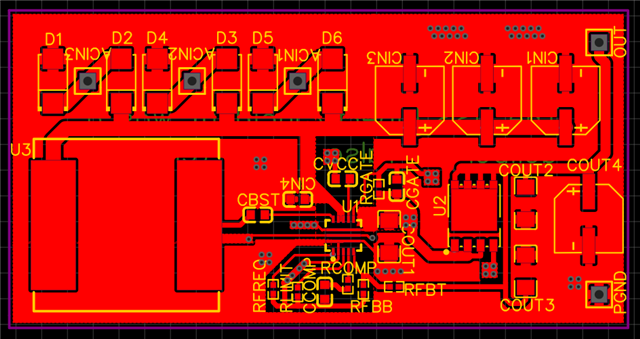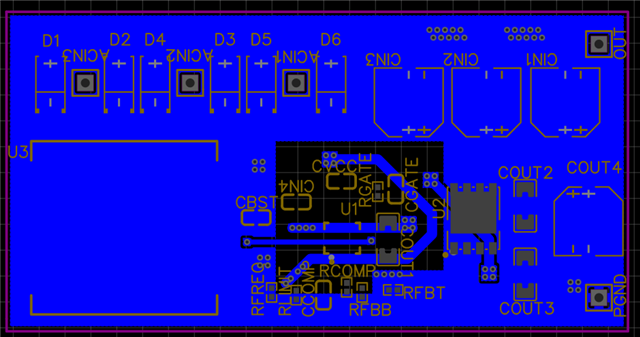Hi Team,
Our customer built a PCB with TPS61178 to step up the voltage for a USB charge board. The specifications are as follows:
Vin = 3V-13.5V
Vout = 18V
Iout = 1A
He copied the schematic diagram from Webench and built the PCB from the schematic. However, the device overheats and 2 of 5 devices were damaged with SW pin shorted to ground. He also added,
The only component I changed was the inductor, due to availability. The original inductor that webench included was a 2.5uH inductor. I changed it to a 2.2uH inductor, with a 2mOhm DCR and 15A rating
Since the pin width and copper trace width are 0.254mm for the SW pin, I routed a copper trace out of the other side as well, then used a via to the bottom layer to route another trace to the Inductor. I did this to add more
copper area, wasn't sure if it needed it. That's why the SW pin has copper coming out from either end. I also added a 3 phase bridge rectifier and 3 capacitors to power the circuit, but I've been powering the board with a DC regulated supply for testing purposes



Aside from lack of vias and insufficient ground plane, do you find other design error?
Regards,
Danilo

